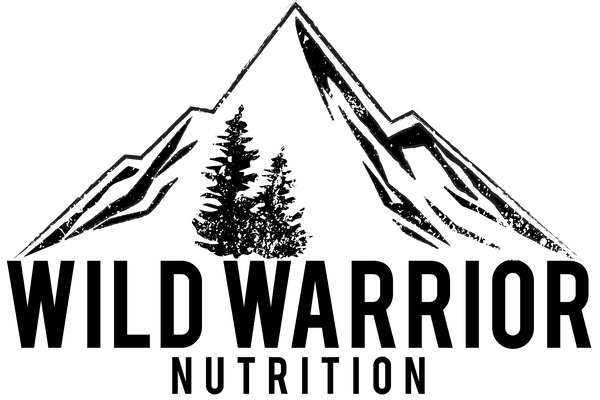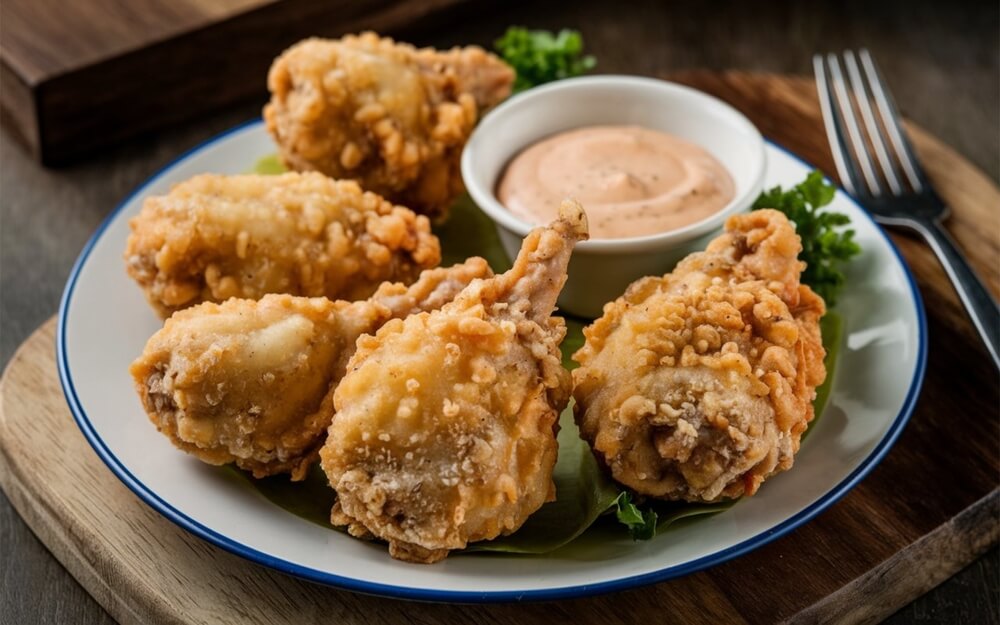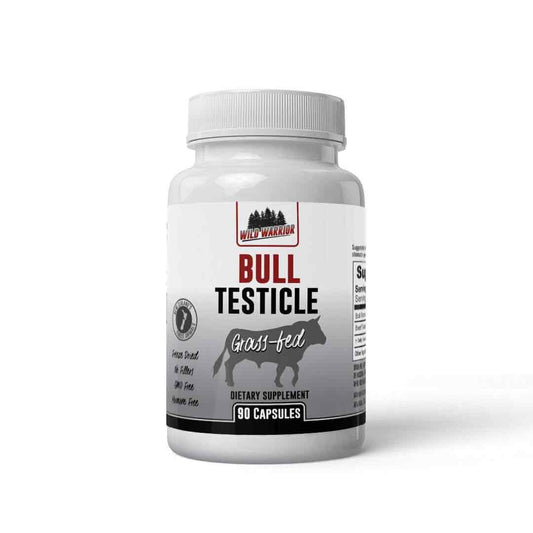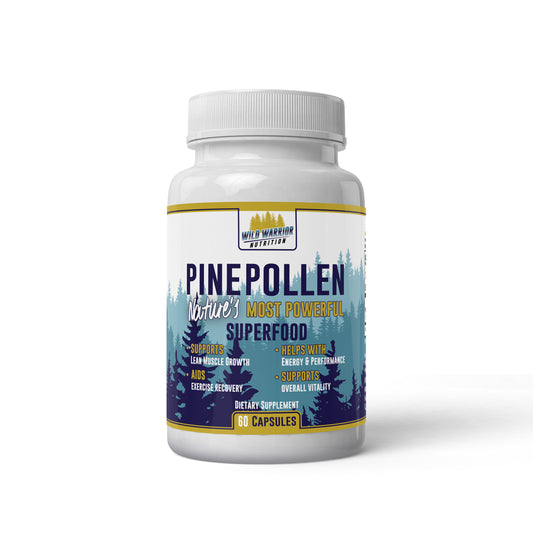Guys, I get it. The term "Rocky Mountain Oysters" doesn't exactly inspire Pavlovian levels of drool. For those of you not in the loop, we're talking about deep-fried bull testicles. Yes, testicles. And before you wrinkle your nose and start scrolling to something more vanilla like, say, protein powder comparisons, allow me to paint you a picture of why Rocky Mountain Oysters are a goldmine for men's health. Spoiler alert: It’s more than just an amusing anecdote for your next dinner party. We're talking testosterone, zinc, and a whole buffet of nutrients tailored to your manly needs.
Brace yourself, gents, because we're about to dunk into the health benefits of what might be the most underappreciated "superfood" on the planet.
The Nutritional Powerhouse Beneath the Batter
Rocky Mountain Oysters are nutrient-dense organs. Each serving contains a concentrated load of micronutrients that play a direct role in supporting your vitality, energy, and yes, your ability to keep dominating in those deadlifts. Here’s how these little nuggets hold up nutritionally:
1. Testosterone in a Bite
Think of Rocky Mountain Oysters as testosterone’s best friend. Since these organs are the very factories where testosterone is produced in animals, they’re jam-packed with a variety of bioavailable compounds that may help optimize hormonal health in men. You’re getting the raw (well, cooked if fried) building blocks for boosting and maintaining optimal T levels simply by consuming them. Feeling sluggish, unmotivated, and like your manliness took an unscheduled vacation? Rocky Mountain Oysters help you say, "Not today, modern malaise!"
2. The Zinc You Need to Stay Alpha
Zinc is the mineral when it comes to supporting testosterone production and immune function. Every serving of Rocky Mountain Oysters is loaded with this crucial element, making it highly effective as a dietary staple or supplement if you’re aiming to keep your hormone levels in check. Studies consistently show zinc deficiency can lead to lower testosterone, reduced athletic performance, and a host of other issues that are anathema to staying at the peak of your game (Prasad et al.).
3. Protein for Muscle Repair
Each serving of Rocky Mountain Oysters provides a solid dose of high-quality protein. If you’re clocking in at the gym multiple days a week or trying to pack on lean mass, these little culinary oddities provide the amino acids your body needs to repair those micro-tears in muscle post-workout. Plus, unlike typical muscle-building foods, they come with a bonus round of nutrients most gym bros don’t even know they’re missing.
4. Rich in Enzymes and Collagen
You know how some guys are doing overpriced collagen protein shots for their skin and joint health? Newsflash: That same collagen is found naturally in Rocky Mountain Oysters. Toss in a mix of enzymes that may assist with digestion and nutrient absorption, and you’ve got a well-rounded addition to your stack without relying on more powders or pills.
Other Benefits Your Doctor Would Back (If They Had the Guts)
While most mainstream doctors tiptoe around the idea of recommending unconventional foods, the health arguments for organ meat consumption are solid. Rocky Mountain Oysters are part of a broader category called “glandular therapy,” which is essentially the idea of consuming specific animal organs to support the same organs in humans. Traditional medicine has embraced this for centuries, and the modern science backing it has only gotten more compelling.
A Natural Energy Booster
Forget chugging another cup of coffee or slapping on some sketchy over-the-counter energy patch. Thanks to its robust nutrient profile, Rocky Mountain Oysters help naturally boost your mental sharpness and physical energy levels. Think of them like nature’s original energy drink. Even better? No jitters, no crashes, and no artificial junk. That’s a win.
Aids Fertility and Libido
Low T isn’t just about feeling tired or losing your edge. It can mess with your libido and even impact fertility. Packed with testosterone-building nutrients and other reproductive-supportive compounds, there’s good reason why organ meats like these have been traditionally fed to men trying to supercharge their virility. Do with that information what you will.
How to Get Started (Without Having to Fry Them Yourself)
If your taste buds aren’t exactly adventurous, it’s understandable that the idea of chomping down on a platter of fried bull balls isn’t at the top of your to-do list. Thankfully, the here-and-now of modern nutrition supplements allows you to tap into the benefits of Rocky Mountain Oysters without the side-eye from your household.
Capsule Form for Convenience
Today, you can find desiccated Rocky Mountain Oysters in capsule form, so you can reap the same rewards without pretending you're on some Food Network challenge. These supplements retain all the good stuff—from zinc and amino acids to testosterone-supportive compounds—with none of the guesswork. Plop a bottle in your cabinet, and you’re good to go.
Cooking Them Yourself
But hey, if you’re feeling bold? Grab the real deal and fry them up. They’re a must-try at least once, if only for the laugh factor. Plus, it’s a dish that doubles as an instant character builder. Just imagine the look on your gym buddy’s face when you tell him the secret weapon behind your latest PR was a Rocky Mountain Oyster omelette.
Final Thoughts
Look, we’re all chasing some version of better. Stronger lifts, better recovery, sharper focus, higher libido, and the feeling of waking up ready to go slay the day like the genetically-engineered badass you secretly think you are. The bottom line is this: Rocky Mountain Oysters may be the underdog superfood your diet’s been missing. Whether you eat them fried, baked, or pop them in capsule form, it’s time to get on the bandwagon.
Because real men? They don’t shy away from the peculiar. They lean in and then flex about it later.
Works Cited
Prasad, Ananda S., et al. “Zinc Deficiency.” Journal of Nutrition, vol. 130, no. 5S, May 2000, pp. 1344S–1349S.





